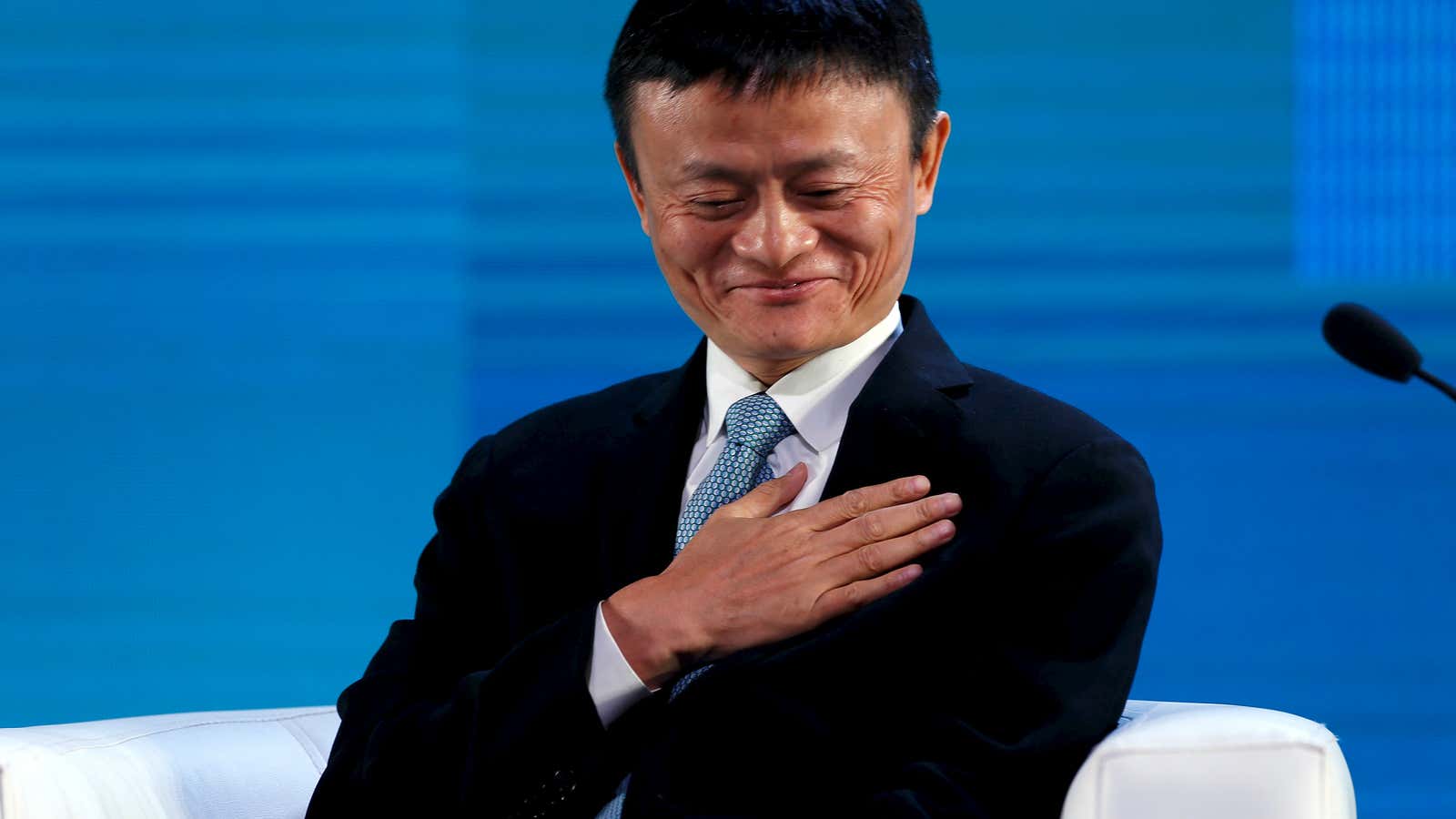Jack Ma’s next acquisition could be a controlling stake in a venerable, but fading, Hong Kong newspaper, the South China Morning Post.
The anticipated deal is likely to fuel more comparisons between Jack Ma and Amazon founder Jeff Bezos, who acquired the Washington Post in 2013 for $250 million and invested $5 million in Business Insider the same year. But Ma is already out-moguling Bezos when it comes media acquisitions in China. The e-commerce entrepreneur, whose net worth at $22.5 billion is about half of Bezos’s, has been building a web media empire in China:
- In March 2013, Alibaba reportedly invested (link in Chinese) in eBusiness Review, a Chinese print publication modeled after the Harvard Business review.
- In June 2014, an Alibaba subsidiary reportedly purchased a 40% stake in Huxiu (link in Chinese), one of China’s leading technology and business blogs, for one million yuan (about $150,000).
- In June 2015, Alibaba invested $193 million in China Business Network, a Bloomberg-esque financial news and data provider.
- In September 2015, Alibaba partnered with financial magazine Caixin (link in Chinese) and the Xinjiang government to launch Wujie Media, an online-only news provider . Earlier this month the outlet investigated a $1.6 billion scam involving a company claiming to make 3D-printed houses.
- In October 2015, Alibaba partnered with the parent company of domestic newspaper Sichuan Daily to start an as-yet unlaunched online media company (link in Chinese).
And that’s just news—Alibaba’s broader media portfolio also includes streaming video, feature film production, and a $200 million investment in Snapchat.
Alibaba’s flurry of media deals, and particularly business news ones, is somewhat perplexing given China’s ongoing crackdown on independent news reporting and non-state sanctioned news reports after this summer’s stock market drop. China’s SAPRFT, which oversees media an entertainment industries in China, issued a directive to news organizations in July forbidding on-site coverage, expert interviews, or analysis of the crash.
Alibaba’s news ambitions may have more to do with commerce than investigative reporting, according to Ma’s recent interview with Bloomberg TV. Referring to how the internet is being accused of killing offline retail, Ma spoke of his desire to work with media companies. “We think internet plus media might be interesting,” Ma said, “to help us to understand them and for them to understand us.” And, he added, “we need media to help promote our small-medium-size companies.”
